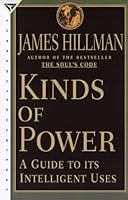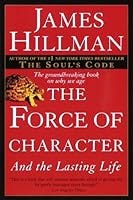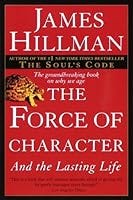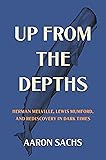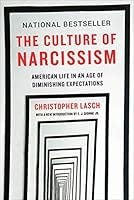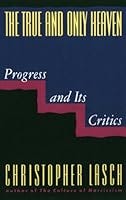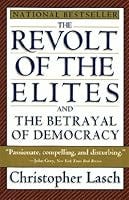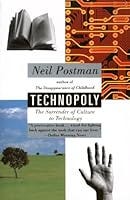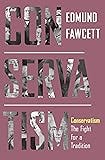These ideas of growth glow with the hope of betterment, although we all know that getting bigger is not always better, that maturation also means withering and dying and that independence also brings solitude.
This crowd of spirits that we call worry, self-castigation, anxiety, remorse, death terror, and erotic longing had similar names in the old world of the Mediterranean. For us they are psychological abstractions; for the ancients they were personified figures, children of Nyx.
That crisis compounds two fears: I am getting on in years, yet am I getting on with what I really am? Aging and character together. This popular syndrome is less about the middle of the life span than about the central crisis of one’s nature, less about being too old than about being still too young. Not loss of capacity; loss of illusion.
Can democracy offset the looming trauma of climate change, with its inherent threat to our sense of continuity? Only, Mumford would say, if it’s a fully inclusive democracy that fosters gratitude and sacrifice. Only if people rediscover the old rituals that have served to broaden and deepen our humanity in troubled times—that connect us to past generations for the sake of future generations. Only if democratic participation involves embracing all “the small life-promoting occasions for love,” as Mumford put it in 1951, after two decades of work on The Renewal of Life [a series of four books Mumford published]. “Not a day, then, without nurturing or furthering life: without repairing some deficiency of love in our homes, our villages, our cities: without caring for a child, visiting the sick, tending a garden.”
Faith in the wonder-working powers of education has proved to be one of the most durable components of liberal ideology, easily assimilated by ideologies hostile to the rest of liberalism. Yet the democratization of education has accomplished little to justify this faith. It has neither improved popular understanding of modern society, raised the quality of popular culture, nor reduced the gap between wealth and poverty, which remains as wide as ever. On the other hand, it has contributed to the decline of critical thought and the erosion of intellectual standards, forcing us to consider the possibility that mass education, as conservatives have argued all along, is intrinsically incompatible with the maintenance of educational quality.
A harsh assessment, published in 1979. Was it accurate then? Is it now? We are now governed by an administration consisting largely of Know-Nothings and those with deeply warped characters, voted into office by a significant number of voters (but not a majority). How might we improve our systems of education?
“Science as a Vocation” and its companion, “Politics as a Vocation,” have been put to purposes Weber himself would have disavowed, serving to excuse moral and political complacency, to rid scholarship of “value judgments,” to reinforce the notion that ethical judgments are completely subjective and arbitrary, and finally to banish them even from politics itself, leaving politics to the managers and technocrats. Far from encouraging “intellectual integrity” or protecting the university from political interference, a misconceived ideal of scientific objectivity has brought about a rapprochement between the university and the state, in which academic expertise serves to lubricate the machinery of power; and it is important to remind ourselves that Weber, often invoked by those who wish to limit both scholarship and politics to purely technical matters, never endorsed such a trivial conception of either.
Lasch gets Weber, Weber is spot on.
The Revolt of the Elites and the Betrayal of Democracy
Anyone who has spent much time with children knows that they acquire much of their understanding of the adult world by listening to what adults do not necessarily want them to hear—by eavesdropping, in effect, and just by keeping their eyes and ears open. Information acquired in this way is more vivid and compelling than any other since it enables children to put themselves imaginatively in the place of adults instead of being treated simply as objects of adult solicitude and didacticism. It was precisely this imaginative experience of the adult world, however—this unsupervised play of young imaginations—that Mann hoped to replace with formal instruction.
One need only have once been a child—as we all were!—to know the truth of Lasch’s observation!
The status of social-science methods is further reduced by the fact that there are almost no experiments that will reveal a social-science theory to be false. Theories in social science disappear, apparently, because they are boring, not because they are refuted.
Harsh, but true to some degree, without question, to my mind.
The Agrarians, Southern writers and intellectuals linked to Vanderbilt University, set out to defend the cultural aims and ideals of their region against the prejudices of the North. A book of their essays, I’ll Take My Stand (1930), stood up for the “Southern way of life” against the “American or prevailing way.” It took the contest to be “Agrarian versus Industrial.”
This split is still with us. I’m not defending the Agrarians, but they have an insight.
Alexander Hamilton, James Madison, and John Jay
This picture of the consequences of disunion cannot be too highly colored, or too often exhibited. Every man who loves peace, every man who loves his country, every man who loves liberty, ought to have it ever before his eyes, that he may cherish in his heart a due attachment to the Union of America, and be able to set a due value on the means of preserving it.
Lincoln took up the call. Will we?




